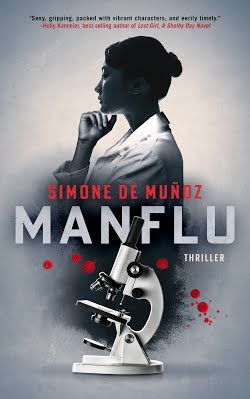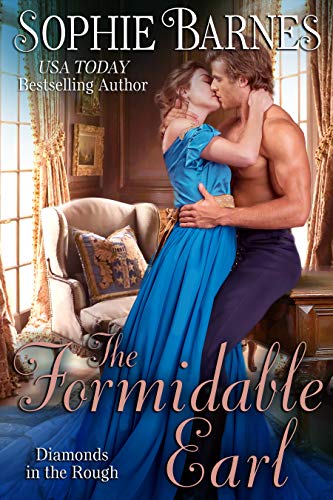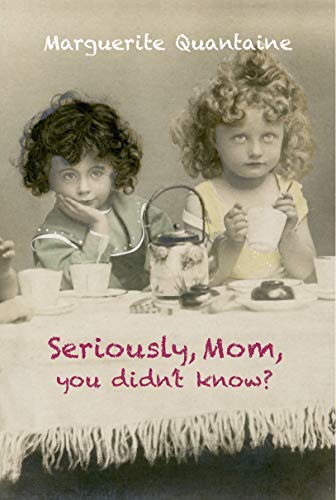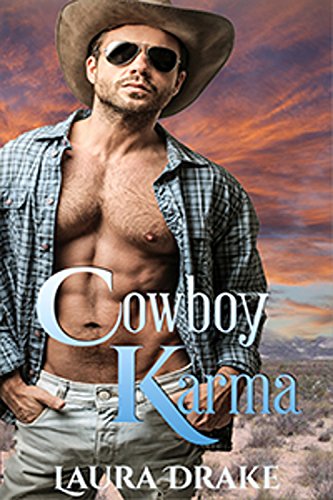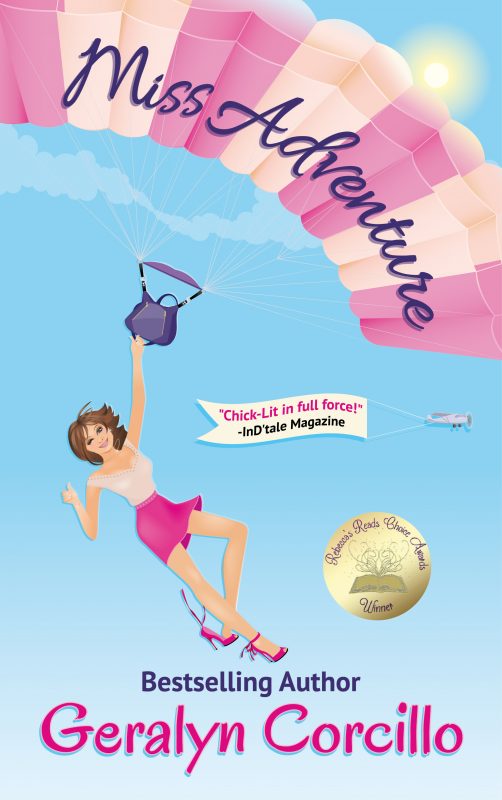Jina’s Vision Board Podcast
January 11, 2009 by A Slice of Orange in category Archives tagged as Confessions of a Podcast Goddessby Jina Bacarr
I wrote a section with Joyce on Erotic Meditation (Visions of Love and Sex: 5 Tips to Help Spice Up Your Visioning) showing you how you can be spiritual and sexy by using the Japanese art of erotic meditation and you don’t even have to take your clothes off.
Since a picture, I mean, a vision board, is worth a thousand words, here’s a video podcast I made about my vision board:
Does it work for writers? I love it. As I’m writing this, I’m looking at a new picture I put up on my vision board of a character in my WIP and it stirs my imagination, revving me up to get back to work…I should add it’s a picture of a really sexy hunk.
How many of you have a vision board? I’d love to hear about your vision board!
Best,
Jina
Jina Bacarr is the author of The Blonde Geisha , Naughty Paris, Tokyo Rendezvous, a Spice Brief, and Spies, Lies & Naked Thighs, featuring a heroine who’s an Indiana Jones in high heels.
“One whiff and every man was her slave.”
0 0 Read moreLife Through The Eyes Of A Writer
January 11, 2009 by A Slice of Orange in category ArchivesBy Nancy Farrier
Holidays are about family and friends. This past Christmas, my daughter and her boyfriend drove down to spend the week with us. They literally fought their way through snow and ice to get to our house, but they were glad they came. Moreover, I was glad they came. We had a wonderful visit, and a very good Christmas.
My son and grandson didn’t get to come for Christmas, so my husband suggested we take off on New Year’s Day and go to see them for a couple of days. Driving from Southern California to Tucson, Arizona takes about eight hours. I do not like driving. The constant vibration of the car, although minimal to most people, is hard on me. However, the excitement of spending time with my son and grandson offset any trepidation I had about the travel.
The night before we were to leave, our church had a New Year’s Eve service. I didn’t get home until after one in the morning, so I wasn’t ready to roll out of bed early the next day. As we drove toward Arizona I was tired. I kept falling asleep and missing parts of our book on tape. By the time we arrived, I was ready to get out of that car. My body ached from the constant sitting. I was tired and desperately wanted to be cranky.
All the discomfort disappeared with the first hug from my grandson. His excitement at seeing me made my day. My son had fixed a delicious home made Mexican meal for us. He even made sure to make part of it that dovetailed with my special diet.
The next two days were wonderful. We played games on the XBOX 360, went hiking, had a Guitar Hero battle, laughed and talked, and caught up as a family. Even though the trip home was long, I was very glad to have gone. All the discomfort was worth the end result of spending time with my family.
I couldn’t help thinking about how my writing is often like this. The writing and editing can be long and painful. There are bumps in the road of writing that are discouraging. You get tired of working on the story. However, when you see the finished book, when your reader tells you how much the story meant to them; then you know the hard work was worthwhile.
Nancy Farrier
0 0 Read moreIt’s Worth It
January 9, 2009 by A Slice of Orange in category Archives tagged as It's Worth ItSAYING NO TO ACHIEVE YOUR GOALS
by Kitty Bucholtz
January is an excellent time to look back and take stock. Over the last year, I have been an active volunteer at OCC RWA and made a LOT of new friends. I’ve taken more than my share of writing classes online, and I attended my first RWA National Conference. I’ve said to yes to the majority of opportunities that came my way, opportunities that made me a better writer and a better person.
But looking forward to the year ahead, I see that I’ll need to be incredibly focused to achieve my goals for the year. I want to finish and submit a single title book that’s been wrapped around my heart. I want to write a category romance for Harlequin American Romance and one for Steeple Hill Love Inspired and see if I like writing them. (I think I will!) I’ll be running in a half marathon for the first time, and in fact, I’m running in three half marathons in 2009. I’m also moving to Australia, and may be enrolling in a master degree program. That’s a lot to do in one year!
In Sociology class in college, I learned that we experience distress and stress in our lives. One is negative and one is positive. But if you don’t give thought to why you’re stressed, you may not recognize the difference. That’s why saying no can be a healthy way to avoid distress and enjoy the things that add stress to your life.
I’ve already begun practicing saying no. I don’t necessarily feel good about it, but I can feel the negative stress fading. And that feels good! I’m even going to the library today to borrow an audio version of the book Boundaries: When to Say Yes, How to Say No to Take Control of Your Life by Henry Cloud and John Townsend.
So among other things, I am going to say no to being a monthly columnist here on the Slice of Orange. This is my last blog, at least for a while. But I wanted to leave you with this thought: where can you say no to something in your life this year that will ultimately lead to you being a better person, a better family member, a better friend, a better writer?
It will probably be difficult to do, but trust me, it’s worth it.
Kitty Bucholtz is a co-founder of Routines For Writers, a new web site to help writers write more. Even though she loves talking about, writing about, and teaching about writing, she’s pretty sure she knows at least three people who aren’t writers.
1 0 Read moreMarriages of Convenience – Yum!
January 8, 2009 by A Slice of Orange in category ArchivesMy blog this month is inspired by a discussion running on eHarlequin about that most traditional of romance novel storylines, the marriage of convenience. I love marriages of convenience (in books, that is, not in real life 🙂 )! A marriage of convenience is more likely than any other plot to get me reading books in a line or series I don’t normally read.
What’s so great about them? For me, I think it’s the larger-than-life situation that “forces†two people into marriage. These days, you’ve got to have a pretty compelling reason to get married, so as a writer it’s a real challenge to think up a marriage of convenience story that my editor believes readers will accept. But once you’ve managed to force your couple into marriage, there are endless opportunities for wonderful banter and fun situations.
In my new book out next week from Superromance, The Groom Came Back, the hero and heroine got married when the heroine, Callie, was a schoolgirl, to rescue her from a custody battle. Callie’s dying mother approved the marriage so Callie could go on living with the “groom’s†family, who were fostering her, rather than being forced to live with her estranged grandparents. The hero, Jack, was back in town to support his parents through a difficult time, but wanted to escape back to his budding career as a neurosurgeon. He figured he could help Callie, and at the same time ensure his parents, who loved her like a daughter, got to keep her with them. Apart from Callie’s mom, no one else knew anything about the wedding…until eight years later, when Jack comes home to get a divorce and discovers Callie is definitely no longer a schoolgirl!
Yvonne Lindsay has a book out from Desire next month called Convenient Marriage, Inconvenient Husband (great title, I’ll definitely be buying that one!). She’s hosting the current discussion at eHarlequin about the appeal of the marriage of convenience. Yvonne says, “I love seeing people forced into a situation outside of their control†– hehe, that’s mean, Yvonne! Mean, but true…all we MoC fans love to see that.
A couple of weeks ago I read a book by Tessa Radley called Pregnancy Proposal. The marriage of convenience was actually an engagement of convenience in this book (which was released from Desire in December and is still available online), and it was a lovely story. These days, people don’t necessarily believe pregnancy is a good reason to get married, but Tessa creates her characters so well, I easily believed neither of them had any alternative but to agree to a convenient marriage.
I’m putting the finishing touches to my own “engagement of convenience†story (Her So-Called Fiancé, Sept 09), and it’s been a challenge to make it convincing, but I think (I hope!), I’ve nailed it.
So, tell me, do you like to read a marriage of convenience story? If you can remember some of your favorites, let me know!
Abby
THINGS THAT MAKE ME GO MMMRUH!
January 8, 2009 by A Slice of Orange in category Archives tagged as Things That Make Me Go Mmmruhby Geralyn Ruane
So where is the mmmruh! in all this? It’s not in the past, where Black Tuesday and Enron lurk to mock us; it’s not in the present, where corporate bigwigs in golden parachutes float over blocks and blocks of foreclosed homes. It’s in the future, where vigilance must be our watchword. There will always be devious sharks out there, trolling for prey to fill their bellies, and they don’t care how much we scream and bleed. But on January 20, a new ship will break through the thick red water, offering passage to those willing to lend a hand on deck. So climb aboard, but be prepared to work your ass off for a better tomorrow.

Geralyn Ruane’s favorite numbers are 18 and 1, and it’s January so she’s getting excited despite Plaxico’s debilitating aim. She co-hosts the radio show Better Times After 50 on AdviceRadio.com and her short story “Jane Austen Meets the New York Giants†is published in the New York Times Bestselling anthology The Right Words at the Right Time Volume 2.
Affiliate Links
A Slice of Orange is an affiliate with some of the booksellers listed on this website, including Barnes & Nobel, Books A Million, iBooks, Kobo, and Smashwords. This means A Slice of Orange may earn a small advertising fee from sales made through the links used on this website. There are reminders of these affiliate links on the pages for individual books.
Search A Slice of Orange
Find a Column
Archives
Featured Books
THE FORMIDABLE EARL
He's breaking the rules for one woman, and coming dangerously close to falling in love…
More info →SERIOUSLY, MOM, YOU DIDN’T KNOW?
Life is a silver lining for those of us willing to scrape the surface of adversity.
More info →COWBOY KARMA
Karma is a good judge of character, and you my friend, are screwed
More info →MISS ADVENTURE
Can a daydreaming city girl find her backbone by going on daring adventures with an adrenaline junkie?
More info →Newsletter
Contributing Authors
Search A Slice of Orange
Find a Column
Archives
Authors in the Bookstore
- A. E. Decker
- A. J. Scudiere
- A.J. Sidransky
- A.M. Roark
- Abby Collette
- Alanna Lucus
- Albert Marrin
- Alice Duncan
- Alina K. Field
- Alison Green Myers
- Andi Lawrencovna
- Andrew C Raiford
- Angela Pryce
- Aviva Vaughn
- Barbara Ankrum
- Bethlehem Writers Group, LLC
- Carol L. Wright
- Celeste Barclay
- Christina Alexandra
- Christopher D. Ochs
- Claire Davon
- Claire Naden
- Courtnee Turner Hoyle
- Courtney Annicchiarico
- D. Lieber
- Daniel V. Meier Jr.
- Debra Dixon
- Debra H. Goldstein
- Debra Holland
- Dee Ann Palmer
- Denise M. Colby
- Diane Benefiel
- Diane Sismour
- Dianna Sinovic
- DT Krippene
- E.B. Dawson
- Emilie Dallaire
- Emily Brightwell
- Emily PW Murphy
- Fae Rowen
- Faith L. Justice
- Frances Amati
- Geralyn Corcillo
- Glynnis Campbell
- Greg Jolley
- H. O. Charles
- Jaclyn Roché
- Jacqueline Diamond
- Janet Lynn and Will Zeilinger
- Jaya Mehta
- Jeannine Atkins
- Jeff Baird
- Jenna Barwin
- Jenne Kern
- Jennifer D. Bokal
- Jennifer Lyon
- Jerome W. McFadden
- Jill Piscitello
- Jina Bacarr
- Jo A. Hiestand
- Jodi Bogert
- Jolina Petersheim
- Jonathan Maberry
- Joy Allyson
- Judy Duarte
- Justin Murphy
- Justine Davis
- Kat Martin
- Kidd Wadsworth
- Kitty Bucholtz
- Kristy Tate
- Larry Deibert
- Larry Hamilton
- Laura Drake
- Laurie Stevens
- Leslie Knowles
- Li-Ying Lundquist
- Linda Carroll-Bradd
- Linda Lappin
- Linda McLaughlin
- Linda O. Johnston
- Lisa Preston
- Lolo Paige
- Loran Holt
- Lynette M. Burrows
- Lyssa Kay Adams
- Madeline Ash
- Margarita Engle
- Marguerite Quantaine
- Marianne H. Donley
- Mary Castillo
- Maureen Klovers
- Megan Haskell
- Melanie Waterbury
- Melisa Rivero
- Melissa Chambers
- Melodie Winawer
- Meriam Wilhelm
- Mikel J. Wilson
- Mindy Neff
- Monica McCabe
- Nancy Brashear
- Neetu Malik
- Nikki Prince
- Once Upon Anthologies
- Paula Gail Benson
- Penny Reid
- Peter J Barbour
- Priscilla Oliveras
- R. H. Kohno
- Rachel Hailey
- Ralph Hieb
- Ramcy Diek
- Ransom Stephens
- Rebecca Forster
- Renae Wrich
- Roxy Matthews
- Ryder Hunte Clancy
- Sally Paradysz
- Sheila Colón-Bagley
- Simone de Muñoz
- Sophie Barnes
- Susan Kaye Quinn
- Susan Lynn Meyer
- Susan Squires
- T. D. Fox
- Tara C. Allred
- Tara Lain
- Tari Lynn Jewett
- Terri Osburn
- Tracy Reed
- Vera Jane Cook
- Vicki Crum
- Writing Something Romantic
Affiliate Links
A Slice of Orange is an affiliate with some of the booksellers listed on this website, including Barnes & Nobel, Books A Million, iBooks, Kobo, and Smashwords. This means A Slice of Orange may earn a small advertising fee from sales made through the links used on this website. There are reminders of these affiliate links on the pages for individual books.





